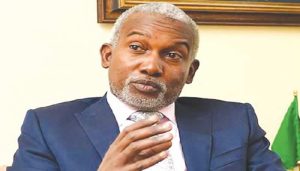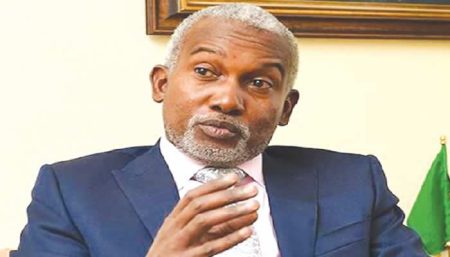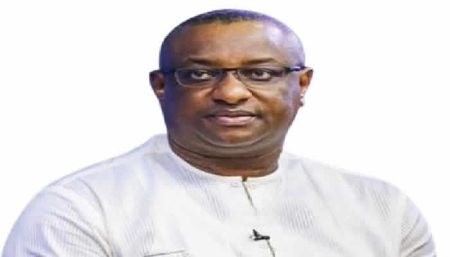The Imperative of Restructuring Nigeria: A Call for Fundamental Change
Nigeria’s current structure, a product of historical accidents and imposed constitutions, requires urgent restructuring to address its inherent flaws and unlock its vast potential. The term "restructuring," as defined by legal scholars, involves reorganizing the legal, operational, and systematic framework of a nation to enhance efficiency, equity, and functionality. Nigeria’s amalgamation in 1914, driven by the economic interests of colonial powers, brought together diverse nations with distinct histories and identities under an artificial construct. The subsequent imposition of various constitutions, each attempting to patch the cracks in the foundation, has failed to create a truly unified and functional nation. The current 1999 Constitution, riddled with amendments and lacking a clear connection to Nigeria’s rich and diverse history, has only exacerbated the existing tensions. A genuine restructuring must go beyond mere tinkering and address the fundamental questions of Nigeria’s identity, its system of governance, and the relationship between the central government and its constituent parts.
The 1999 Constitution has been subject to numerous amendments, highlighting its inadequacy in addressing the nation’s complexities. Drawing parallels with the United States, a nation with a much longer history and a more stable constitutional framework, Olanipekun emphasizes the need for a foundational change rather than superficial adjustments. Nigeria’s journey through various constitutions, from the Clifford Constitution of 1922 to the current 1999 Constitution, reveals a pattern of imposing structures that fail to reflect the will and aspirations of the people. The lack of consensus and the absence of a true federal spirit have created a system where different groups feel marginalized, leading to constant agitations and instability. A genuine restructuring must involve a thorough review of the Constitution, ensuring that it reflects the principles of federalism, equity, and justice for all Nigerians, irrespective of their ethnic or regional background.
Lessons from other federal systems, such as the United States, Canada, and Switzerland, highlight the importance of voluntary association and shared power. In these successful federations, autonomous entities come together to form a stronger union, contributing to the center while retaining significant control over their internal affairs. Nigeria’s current structure, characterized by a powerful center and weakened states, contradicts the principles of true federalism. The concentration of power in Abuja has created a system where states are dependent on the federal government, stifling local initiative and exacerbating regional disparities. Restructuring should empower the states, granting them greater autonomy over their resources and governance, fostering healthy competition and balanced development.
The fear of minority groups being swallowed by larger entities is a legitimate concern, but it should not be a barrier to restructuring. Nigeria’s history demonstrates that the current system, with its centralized power structure, has failed to protect minorities. In fact, the concentration of power has created a winner-takes-all scenario, where the dominant groups often marginalize others. A true federal system, with its emphasis on shared power and regional autonomy, can provide better protection for minority rights. Each region, with its unique cultural and linguistic identity, can have greater control over its affairs, ensuring that the voices of all Nigerians are heard and respected.
Rotational presidency, while seemingly promoting equity, offers a superficial solution that fails to address the root causes of Nigeria’s political challenges. A rigid rotation system can create a sense of entitlement and exclusion, further deepening existing divisions. Instead of focusing on rotating the presidency, the focus should be on creating a system where every Nigerian, regardless of their region of origin, feels represented and has equal opportunities. This requires a fundamental change in the political culture, fostering a sense of national unity and shared purpose that transcends ethnic and regional identities.
Nigeria’s path to true federalism requires an autochthonous constitution, one that reflects the will and aspirations of the people and draws upon their rich history and traditions. The current constitution, lacking a clear historical foundation and imposed by military regimes, fails to capture the essence of Nigerian nationhood. An autochthonous constitution, developed through a truly participatory process, can establish a stronger sense of ownership and legitimacy, fostering a shared vision for the future. This process should involve representatives from all segments of society, ensuring that the diverse voices and perspectives of Nigerians are incorporated into the new constitutional framework.
The current unitary drift evident in various sectors, including security, education, and trade, further underscores the urgent need for restructuring. The centralization of power in Abuja has created inefficiencies and undermined local initiatives. The control of the police force by the federal government, for instance, has proven ineffective in addressing the diverse security challenges across the vast expanse of Nigeria. State police forces, accountable to local communities, are better equipped to understand and respond to local security needs. Similarly, greater autonomy in education and trade can empower states to tailor policies to their specific needs, fostering economic growth and development.
The ongoing constitutional amendment process by the National Assembly, while a positive step, must go beyond superficial changes to address the fundamental issues plaguing Nigeria. A meaningful restructuring requires a comprehensive review of the entire constitutional framework, not just piecemeal amendments. The preamble itself, the foundational statement of the constitution, must be revisited to reflect the historical realities and aspirations of the Nigerian people. The current preamble, with its vague and generic language, fails to capture the essence of Nigerian nationhood and the spirit of unity in diversity.
The expansion of the jurisdiction of the Federal High Court and the creation of the National Industrial Court have further centralized the judicial system, undermining the principles of federalism and potentially compromising the right to a fair hearing. A restructured Nigeria should have a judicial system that reflects the federal structure, empowering state courts to handle matters within their jurisdiction. This will not only improve efficiency but also enhance access to justice, especially for those in remote areas.
The successful implementation of restructuring requires a commitment to the rule of law, transparency, and inclusivity. The process must involve all stakeholders, ensuring that all voices are heard and that the outcome reflects the shared aspirations of the Nigerian people. This requires a fundamental shift in the political culture, away from the winner-takes-all mentality towards a more collaborative and consensus-driven approach. Only through a truly participatory and inclusive process can Nigeria create a system that guarantees equity, justice, and stability for all its citizens.














